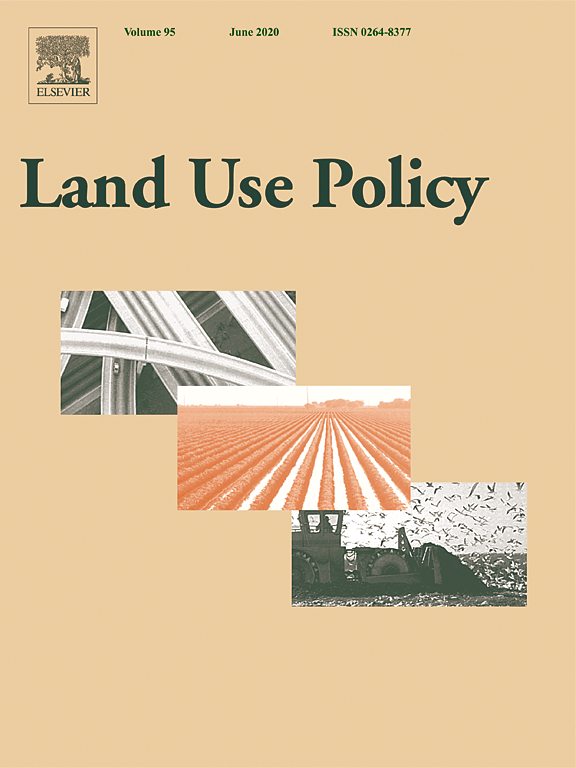Location
Land Use Policy is an international and interdisciplinary journal concerned with the social, economic, political, legal, physical and planning aspects of urban and rural land use. It provides a forum for the exchange of ideas and information from the diverse range of disciplines and interest groups which must be combined to formulate effective land use policies. The journal examines issues in geography, agriculture, forestry, irrigation, environmental conservation, housing, urban development and transport in both developed and developing countries through major refereed articles and shorter viewpoint pieces.
Land Use Policy aims to provide policy guidance to governments and planners and it is also a valuable teaching resource.
ISSN: 0264-8377
Members:
Resources
Displaying 186 - 190 of 279Applying Ostrom’s institutional analysis and development framework to soil and water conservation activities in north-western Ethiopia
Sustainable land management is of utmost importance in Ethiopia and relies on Soil and Water Conservation (SWC) measures collectively implemented by smallholders through participatory processes. This paper contributes systematic evidence on how SWC strategies are implemented and how participation is operationalized.
Do national strategies under the UN biodiversity and climate conventions address agricultural commodity consumption as deforestation driver?
Forest conversion in the tropics is increasingly driven by global demand for agricultural forest-risk commodities such as soy, beef, palm oil and timber. In order to be effective, future forest conservation policies should include measures targeting both producers (the supply side) and consumers (the demand side) to address commodity-driven deforestation.
Mainstreaming ecosystem science in spatial planning practice: Exploiting a hybrid opportunity space
This paper develops a framework for improved mainstreaming of ecosystem science in policy and decision-making within a spatial planning context. Ecosystem science is advanced as a collective umbrella to capture a body of work and approaches rooted in social-ecological systems thinking, spawning a distinctive ecosystem terminology: ecosystem approach, ecosystem services, ecosystem services framework and natural capital.
Estimating welfare impacts where property rights are contested: methodological and policy implications
Where rights over natural resources are contested, the effectiveness of conservation may be undermined and it can be difficult to estimate the welfare impacts of conservation restrictions on local people. In particular, researchers face the dilemma of estimating respondents’ Willingness To Pay (WTP) for rights to resources, or their Willingness To Accept (WTA) compensation for foregoing these rights.
Identifying key factors for mobilising under-utilised low carbon land resources: A case study on Kalimantan
Mobilising under-utilised low carbon (ULC) land for future agricultural expansion helps minimising further carbon stock loss. This study examined the regency cases in Kalimantan, a carbon loss hotspot, to understand the key factors for mobilising ULC land via narrative interviews with a range of land-use actors and complementary desktop analyses.



